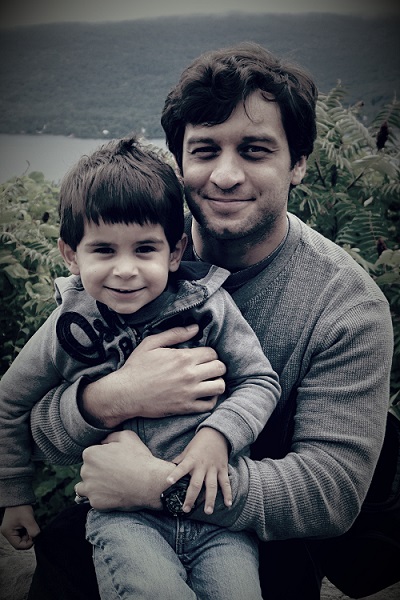
Written for my son’s third birthday
A child is a dispatch to a future that we ourselves will never see.
As parents, we want to care for our children, to protect them, to shelter them as long as we can. But we can’t shelter them forever, no matter how much we might wish to. Eventually, we have to send them out into the wilderness of the world, hoping and trusting that we’ve done everything we can to prepare them.
Yet at the same time, we know it’s not possible to equip them for every hazard. Our children will grow up in a world that’s radically different from ours, just as our world is radically different from our ancestors’, and we can’t tell them in advance what the risks and the opportunities will be. We send them out in the certainty that they’ll face dangers we couldn’t foresee, challenges we couldn’t conceive of. Like a boat set adrift, they’ll be carried by currents and tossed by storms, and we have no way of knowing whether they’ll come to rest in a safe harbor.
This isn’t just a matter of the big looming crises, like climate change or gun violence or rising inequality and nationalism, that humanity will face in the decades ahead. It’s the small-scale questions as well, the ones that everyone confronts no matter the world they live in: Will our children have comfortable, stable lives? Will they find friendship and love? Will they be happy? Will their lives turn out as we’d like them to?
Albert Camus famously said that the only serious philosophical question is whether to commit suicide – as in, is this world good enough to take a chance on, or should we opt out immediately?
But while I see the point he’s making, I think that reasoning is incomplete. Even if you agree with this logic as far as it goes, there’s a second, bigger and more serious question that follows, and that’s whether to start a family. After all, even if I decide I’m willing to endure the darts of fate, do I have the right to inflict those same trials on others who couldn’t consent to being born? Can I decide on another’s behalf whether their life is worth living?
To answer this question in the affirmative says something profound about your view of the world. Specifically, for many of us who choose to start a family, having children is a statement of confidence in the future. We have kids because we believe that, whatever struggles or setbacks they face along the way, their lives will be better than ours. And this means that parenting is an inherently optimistic endeavor.
Of course, there are exceptions. Some people have unplanned or unwanted pregnancies. Some people have children to satisfy their own narcissism or codependence, or because their religion commands them to, or for some other unwholesome reason. But for those who make the choice as a choice, in clear-eyed recognition of the possibilities, it can’t be other than an expression of belief that the world will continue its long trajectory of improvement.
The obvious example is the immigrants who uproot themselves to start over in a foreign country, scrimping and saving to give their kids an intergenerational boost up the ladder, trusting that their sacrifices will help their descendants find opportunity and success. America at its best moments has embodied this upward-reaching spirit.
But I think this principle holds across all levels of class and privilege. I haven’t gone through any such profound life transformation, but I have firsthand experience of how parenting changes your outlook, although it took me a while to realize it.
My son was born just before the 2016 election. The first few months of his life were very hard. All the anger and depression and emotional turmoil that I felt were magnified by the stress and sleepless nights of caring for a newborn.
But at the same time, caring for him kept me grounded. Even when the headlines are dark and frightening, even when the world seems to make no sense, babies still need to be fed and changed and rocked to sleep. It was simple and necessary work, like a lamp-lit path beckoning when the rest of the world is a dark maze. It steadied me in a time when I might otherwise have felt as if my life had no center. In a strange way, I sometimes felt as if I was depending on him.
And as he gets older, I find this still holds true. Whenever I find myself tempted to despair, whenever I think that humanity is doomed by its short-sightedness, I remember that I have a personal stake in how the future turns out.
Children have an unclouded perspective on the world. They live in the moment, free of worry, free of fear. They don’t have the anxieties that accumulate in an adult’s mental life, the distant fears and anticipations and doubts that hang around us like cobwebs. They find happiness in the simplest things: a new book we can read together, a joyous run through the grass, peaceful sleep at the end of an adventurous day.
I want to preserve that uncomplicated joy for as long as possible. I don’t want to shelter my son from the bad things that happen, or lie to him and tell him that the world is other than it is. But I have a duty to create the best future I can for him. I can’t know for sure if I’ll succeed, but being a parent means I have to believe that the world is worth fighting for.